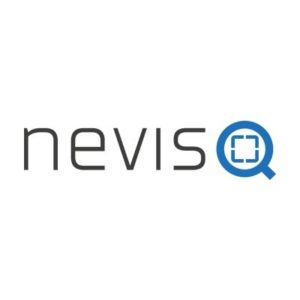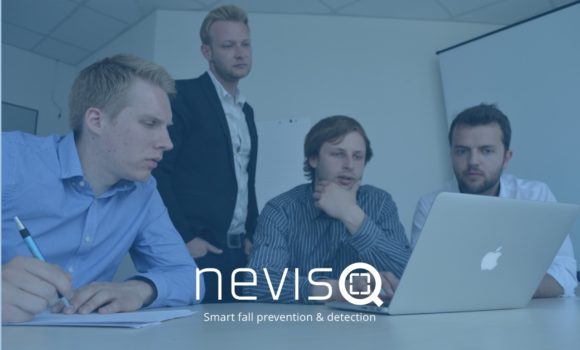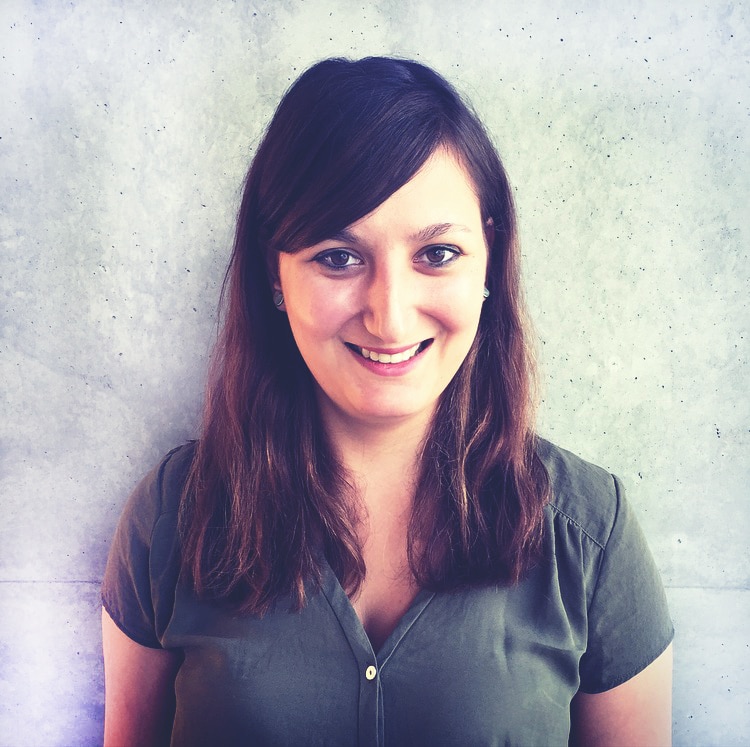Meet our CODE_n CONTEST Finalists 2016: nevisQ from Germany
 nevisQ provides patented smart baseboards that can recognize and analyze activity in rooms. The young HealthTech startup therefore provides a solution which can detect and prevent falls in nursing homes. In the event of a fall, the nurse is notified via an app/web or an app/bell system. Dennis Breuer, Co-Founder and Managing Director of nevisQ told us more about his young company, which is among our CODE_n CONTEST finalists this year.
nevisQ provides patented smart baseboards that can recognize and analyze activity in rooms. The young HealthTech startup therefore provides a solution which can detect and prevent falls in nursing homes. In the event of a fall, the nurse is notified via an app/web or an app/bell system. Dennis Breuer, Co-Founder and Managing Director of nevisQ told us more about his young company, which is among our CODE_n CONTEST finalists this year.
What is nevisQ all about? How did you come up with the idea?
Dennis:nevisQ develops technologies to make living in rooms easier and more secure. Our first application is a system which automatically prevents and detects falls of elderly people. By simply installing smart baseboards we can monitor objects, persons and activities in a room. Our solution helps nurses in a nursery care home to keep the overview of all residents and therefore to work more efficient. In addition to that, the follow-up costs of a fall can be reduced.
“Digital Disruption“ – that’s the motto of this year’s CODE_n CONTEST. What makes your solution innovative, what makes it disruptive?
Dennis: Our system is to a high degree self-thinking and -acting, which means that certain actions of people are no longer necessary. Elderly people do not need to wear any gadgets or execute actions on their phone. The system performs all of it by its own by recognizing and analyzing the behavior of people. The number-one solution to prevent and detect falls of elderly people in Germany is a button which they have to carry around their neck. This is very stigmatizing and in case of an emergency, most people are not able to press the button or are not wearing it at all. Our solution is based on a completely new way of detecting and preventing falls, using artificial intelligence.

You’re one of the 13 finalists in the HealthTech contest cluster. Which challenges do you think young companies have to face in this sector? How do you handle these challenges?
Dennis: It is not easy to convince players of the health care sector about innovative solutions. Health is a very difficult topic where many people don’t want to take great risks and rather stay with well-knows solutions until an innovative approach has proven to be safe, powerful and affordable. People in leading positions in the health care sector are part of our network who provide us with deep knowledge about this industry and act as a connector to other players of this market. We will be able to test our solution live under real circumstances in health care facilities. Thereby we want to show that our solution is powerful and safe.
The demographic change in Germany concerns the state as well as many industries. The need for solutions assisting the elderly is pretty high. Is the digital transformation our saviour here? Will we live “saver” thanks to digital solutions in the future?
Dennis: We believe that digital solutions will help to make life more secure and more comfortable in the future. Digital solutions can process data automatically and much faster than humans can do. By simply using our solution a lot of time can be saved for caregivers, knowing that our system will warn them in case of a (potential) emergency. The time gained can be used for more important things, like spending more time with an individual. In addition to that residents and their relatives feel better knowing that they live in a secure environment. Last but not least, a lot of costs can be saved by preventing a fall.
Additionally, we think that there are a lot of tasks, which cannot be substituted by digital systems, like social interactions. So we assume that digital transformation will play a major role to make life safer and easier, especially facing the demographic change, but human beings will still be needed for many tasks. With our solution we want to give nurses the opportunity to spend more time with their residents and promote social interactions.
Thanks very much for the interview, Dennis!






Write a comment